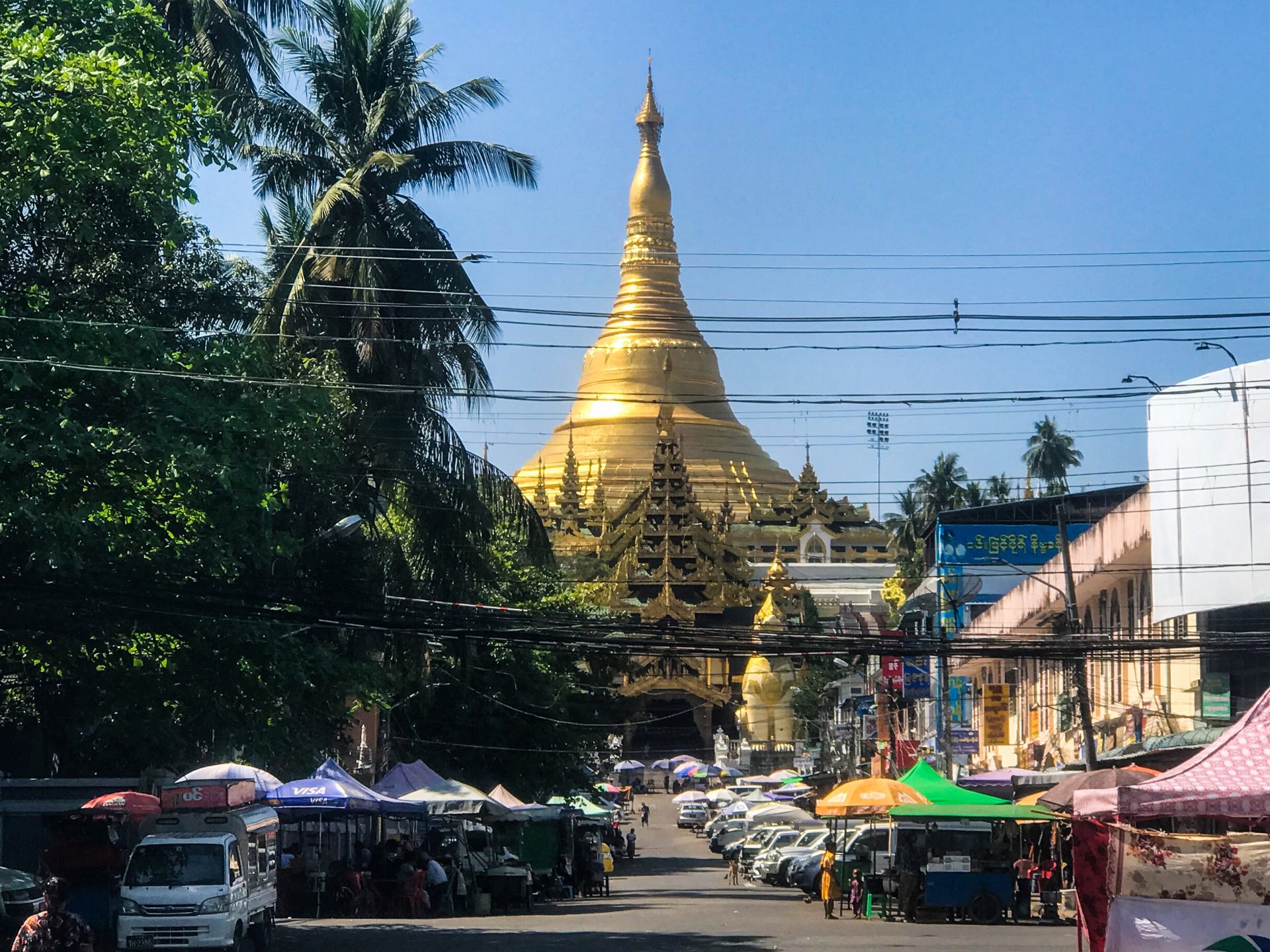Myanmar’s junta has prohibited Buddhist monasteries in the Yangon region from accepting overnight visitors as part of what it says is a bid to reduce crime.
But monks are calling the move an insult to their religion.
The Yangon Region Sangha Maha Nayaka Council, a group of senior monks that oversees the Buddhist clergy in Yangon, announced on Nov. 23 that overnight visitors would no longer be allowed in monasteries unless they obtain prior permission from authorities.
Several departments under the junta had ordered the change because they accused overnight guests at monasteries of committing robberies, fighting in the streets and other crimes, it said in a statement.
Several monks who spoke with Radio Free Asia rejected that idea, saying the accusations imply that monasteries intentionally harbor criminals.
“Monks only accept visitors who are local people from their native towns and who rely on monasteries as the only places they know in large cities like Yangon,” said a monk with the anti-junta Mandalay Sangha Union who declined to be named.
“That’s why we do not accept their statement,” he said. “It’s a deliberate insult to our religion.”
First time to apply a law on religious group
The decision marks the first time a religious organization has been used by the junta to enforce Myanmar’s Ward or Village-Tract Administration Law, which gives authorities the right to enter people’s homes and detain anyone who is staying there without having registered to do so.
The law had been abolished in 2016 under Myanmar’s civilian National League for Democracy government after clauses that allowed authorities to enter homes at any given hour and make arrests were found to violate civil rights, but was reinstated by the junta as part of a bid to tighten its control over the civilian population shortly after seizing power in a Feb. 1, 2021 coup.
Speaking to RFA Burmese on Tuesday, a senior monk at a monastery in Yangon who spoke on condition of anonymity rejected the council’s claim that overnight guests at monasteries commit crimes. He said that those who stay in monasteries typically do so for educational purposes or medical treatment, adding that only people who the monks know personally are permitted to stay.
“Some people come because they are sick and need medical treatment for their health … They just see the doctors and then they leave,” he said. “They usually sleep in the monasteries because they don’t know anybody else to spend a night or two with before they go back home.”
“It’s just a temporary stay. They are allowed only if we know them personally. If not, we do not let them,” he said. “We have never accepted strangers.”
A resident of Magway region named Ko Aung, who previously stayed at a monastery in Yangon while attending class there before the military coup, told RFA that monks are hospitable and have plenty of room to take in guests, making monasteries good places for lay people to stay.
“Robberies and crimes are just an excuse for the junta to exert control” over monasteries, he said.
The Yangon Region Sangha Maha Nayaka Council’s announcement of the restriction on overnight visitors is only addressed to monasteries in Yangon region and RFA was unable to confirm whether the ban extends to monasteries in other states and regions as well.
According to data collected by RFA, as of August 2022, authorities in Myanmar have detained at least 56 monks who spoke out against last year’s military coup and killed 5.
Copyright © 1998-2020, RFA. Used with the permission of Radio Free Asia, 2025 M St. NW, Suite 300, Washington DC 20036.
